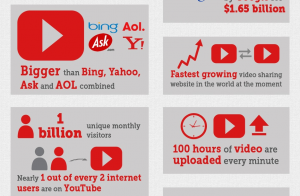— August 19, 2019
The role of the leader has never been as important or demanding as it is today. Leaders at all levels must deliver consistent, sustainable results in leaner organizations and get things done with fewer resources. There is an emphasis on maintaining employee morale and high levels of productivity in an increasingly complex and changing business environment. And leaders must ensure that the right people with the right skills are in the right roles.
Given the volatility of today’s increasingly global economy, companies are turning to agile leaders with the ability to connect, adapt, and deliver to remain competitive and build lasting success. Whether they are balancing an organization’s short term needs against its long term goals or working to secure buy-in for difficult change initiatives, agile leaders have become an essential part of talent management strategies in organizations of all sizes and across multiple industries.
Unfortunately, many companies have fewer resources to devote to selection, succession, and leadership development initiatives to help ensure that they both identify potential agile leaders and set them up for success to effectively handle these challenges. In this “VUCA” environment (Volatile, Uncertain, Complex, Ambiguous), an understanding of which competencies make the difference in a leader’s effectiveness, and the extent to which this varies by industry, can help organizations prioritize their talent management efforts to ensure initiatives are high impact and yield the greatest return on investment.
To shed light on the competencies that differentiate top performing leaders, OnPoint Consulting, in partnership with the American Management Association, collected data on the managerial effectiveness of 622 leaders across organizations including non-profits, multi-nationals, Fortune 500, and Fortune 1000 organizations.
Of 46 competencies, three emerged as the factors that differentiate the most effective leaders across industries. The results suggest that these leaders are able to balance execution-oriented behaviors with the interpersonal skills required to build strong relationships. Organizations would benefit from devoting equal time and resources to help leaders develop these competencies early in their careers.
The 3 Most Impactful Leadership Competencies
1. The Ability to Build Trust and Demonstrate Personal Accountability.
While the ability to build trust and demonstrate personal accountability may seem fundamental, its power and impact cannot be underestimated. Numerous studies have shown that increased accountability leads to enhanced team performance. When a leader fails to take accountability for his or her actions, it can lead to a “culture of blame” where trust is eroded and finger-pointing and avoiding problems becomes the norm.
To what extent is a lack of accountability a problem in today’s organizations? In another OnPoint survey of over 400 senior and mid-level leaders, 40 percent reported that employees in their organizations are not being held accountable for results. Another 20 percent reported that managers in their organizations do not deal with poor performers.
The extent to which high levels of trust and accountability are part of an organization’s culture is determined and shaped by direct managers. The ability to build trust and foster accountability is a skill that can be learned and improved. When it comes to assessing effectiveness, our study shows that having excellent technical or functional skills or innate intelligence does not compensate for a failure to master this aspect of management. Organizations that ignore the development of what some would consider a “soft” skill are missing the opportunity to build well-rounded managers and positively impact organizational performance.
2. The Ability to Effectively Execute Plans and Initiatives.
Most organizations understand the need to develop an exciting vision and a realistic strategy. The key issue for organizations today is fulfilling the promise of that vision. OnPoint’s Execution Gap survey found that 49 percent of respondents reported a gap between their organization’s ability to formulate a vision and strategy and deliver business results. Given the importance of effective execution on business performance, organizations need to ensure that leaders have the skills required to deliver consistent results and get things done day-to-day in a dynamic work environment. The topic of execution and delivering results should be given increased importance in management development activities.
3. The Ability to Remain Flexible and Adapt to Changing Situations.
Managing change is a top priority and on the list of leadership success factors in most organizations. Yet, despite the amount of time and money that has been invested in training leaders in the tools and skills to manage change, the results have been uneven at best. Managing change is frequently an elusive skill for many leaders.
What are the leaders who are perceived as effective change managers actually doing? Our research points to modeling behaviors that facilitate change as the primary difference between the most effective change managers and those who are less effective. This core behavior goes beyond verbally endorsing a change. It is not enough to just say the right thing or even enthusiastically communicate the benefits and the business case for the change. Employees want to see those words backed up with behavior. When people say that someone leads and manages change effectively, they specifically mean that they can observe the consistency of that leader’s behavior with change objectives. Helping leaders understand the importance of this is essential for the development of this competency area.
The Bottom Line
While there is clearly no silver bullet to effective leadership, our study offers some insight into the competencies that set apart the best from the rest. The three key competencies that set apart exceptional leaders, regardless of industry—building trust and personal accountability, delivering on commitments, and agility—reinforces the idea that leaders must be able to balance execution with the interpersonal side of leadership. It also appears that failure to master these skills early in one’s career may be one of the top derailers for a leader.
Business & Finance Articles on Business 2 Community
(136)







